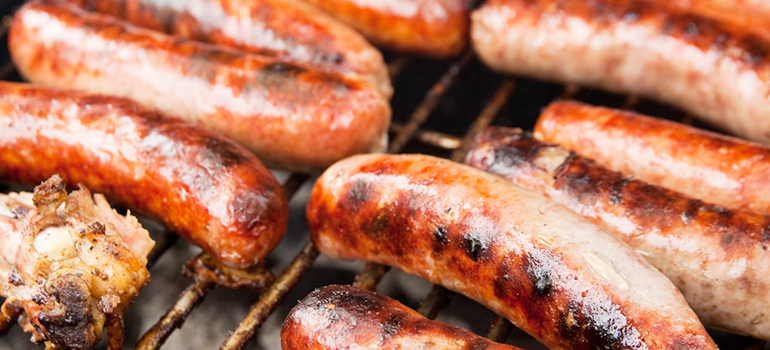Keep your hot foods hot and your cold foods cold, says Siyun Wang. Photo: Wikimedia Commons.
Siyun Wang is an assistant professor of food safety engineering with the Faculty of Land and Food Systems. Her research focuses on how food bacteria pathogens like E. coli and Salmonella survive in food and cause disease in humans.
How can people avoid getting sick from picnics and barbecues this summer?
Unfortunately as much as we love the warm weather, harmful bacteria love high temperatures as well. There are actually three tips that I can share with you. The first is to always remember to wash your hands before cooking and eating. That seems really basic but especially during outdoor activities when the bathroom is not nearby, people tend to forget about that. The second tip is to separate the cooked foods from the raw foods. For example if you are using a plate to hold raw meat for grilling, remember not to use the same plate for potato salad. The third is to cook your food thoroughly. This is extremely important because harmful bacteria such as E. coli, Salmonella and Campylobacter can be killed if the temperature is high enough.
How do can you tell if the bacteria on your meat is gone?
For beef burger, the internal temperature should reach 71°C. For foods such as chicken wings, the internal temperature should reach 74°C. It is recommended that you use a digital food thermometer. The thermometer not only ensures food safety but also tells you the doneness of the meat you are cooking. If you don’t have one and you’re cooking beef burger, the meat should turn into a brown colour instead of pink.
How long can you wait to eat things like potato salad or meat without getting sick?
A general practice is to keep your hot foods hot and your cold foods cold. If you put your potato salad directly on ice, it should be good for a couple of hours. If it is hot food like fried chicken or barbeque, you probably want to eat them within two hours after they are prepared.
Video: Siyun Wang talks food safety


